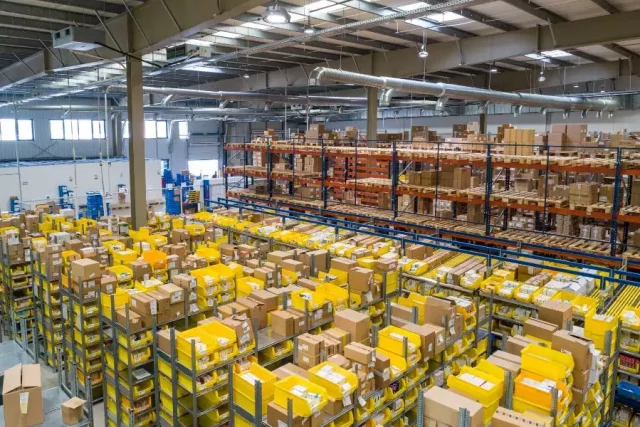If you are in the import/export industries, you know how supply chain steadiness can affect your business. If not handled well, logistic management can be a tough grind. But with automation and perfect coordination, handling logistics should be hassle-free. Here’s a guide on crucial logistics management tips for your shipping company.
Plan Well
As with any business activity, managing logistics safely needs proper planning. Proper planning in logistics management ensures there is maximum profit and no compromises. A plan detailing all the steps involved in freight shipping and forwarding is vital – starting from procuring goods, storage equipment, and timely and safe delivery to the final consumer.
What’s more, the plan should include the time and transportation costs of the whole operation. The plan should also be structured such that there is maximum output on minimum input, enabling efficiency. This means crafting a plan to finish an operation in the least time and costs possible, while attaining maximum work.
Another factor to consider is a contingency plan to handle and prevent logistics failure should emergencies occur. Things happen, and preparing for unforeseen circumstances by having an emergency plan is essential. Unforeseeable situations may involve:
- Products
- Transport unavailability
- Internal issues in an organization
- Picking the right freight
So, remember to plan well and have a backup plan in the event of unpredicted circumstances.
Efficient Transportation
Besides warehouse management, efficient transportation is another critical factor in an efficiet supply chain. That’s so because efficient transportation ensures clients get what they’ve been waiting for, and you paid for delivering sound goods. With good transportation, you can minimize product damages. But what is more important is that you can reduce costs and meet appropriate delivery times.
To ensure sound transportation, establish the best delivery route beforehand. That is finding the shortest (to save time) yet safest (to minimize product damage) route possible. Doing so saves time, money and ensures things run smoothly. Cost-effective packaging is also an excellent way of efficient transportation. It ensures low costs and safe delivery of goods. Here, you’d want to package the products such that they occupy less volume and the weight remains the same. You may also want to invest in training your manager to better handle transportation operations. A transport manager course will help them acquire the necessary skills and knowledge in managing a team, handling finances, and other managerial tasks. With the right skills and knowledge, your transport manager can guide their team towards optimal performance.
You should also think about getting the right equipment for the job. For example, lots of companies have started using a high-capacity drag conveyor that reduces the amount of time it takes to load and unload products. By investing in such equipment, you can significantly reduce costs and increase efficiency in your transportation operations.
Automation
Since logistics depend on quick services to reduce wastage of time, embracing automation and doing away with manual operations is essential. Doing so would enable you to monitor, track fleet performance and ensure smooth supply chain operation. You can use various software to embrace automation. Such software provides timely updates regarding goods’ movement, creates transparency, offers a fantastic customer experience, empowers the safety network, and improves management efficiency.
With the business process software, you can learn goods already dispatched from the supplier, procured at the warehouse, or delivered to their final destinations. Such information can be a time saver and provides convenience by preventing you from the hassle of manual operation. Again, an automated tracking system is more accurate in tracking and organizing an employee and their account details. This accuracy leads to an improved logistics management operation.
Staffing
Intelligent staffing in a logistics company ensures smooth supply chain operation. When hiring employees, look for those with relevant skills like excellent interpersonal skills. These skills can come in handy in settling disputes and calming clients as the contingency plan handles unforeseen situations. Besides skills, being fast and steady, especially for the manager and delivery guy, is vital in ensuring operations move quickly.
Regular employee training is also crucial in updating them on the proper handling of edibles, fragile goods, chemicals, and the latest trends in the logistics industry. Such training can equip employees with knowledge and skills in logistics operation, enhancing customer experience and satisfaction.
Manage Warehouse
Since everything begins at the warehouse, proper warehouse management is an integral aspect of effective logistics management. The way you manage your warehouse depends on what you are shipping.
So, if you are shipping perishable goods like dairy products, your warehouse should be adequately vetted, ventilated, and refrigerated. Similarly, if you store grains, you’ll need a moisture-free environment. Shipping time-sensitive goods like fashion products or auto parts would require your warehouse operations to be fast enough to catch up with turnaround times.
Having the right inventory size is also crucial in maximizing profits. A small inventory can result in a supply shortage, delaying orders. Similarly, a large inventory can be costly. So, striking a balance and having a manageable and accurate inventory size is vital to ensure profits. Plus, a sound inventory management system can make stock level control efficient and anticipate customer demands, saving cost, time, and consumer loyalty.
Maximizing warehouse storage space is another way of effectively managing a warehouse. On that note, having vertical storage is recommended. A software sequencing application for products enables easy accessibility of goods whenever needed, enhancing logistics management. As with anything, warehouse operations, management, and software applications need skills to handle them effectively. So, all the warehouse employees should be trained on that.
Analyze And Improvise
Without analysis, you cannot know whether your logistics operations are improving or not. There are many ways of analyzing performance, customer feedback and reviews, and freight management metrics. Freight management metrics involve different aspects. For instance, the amount of time your packages take to reach customers, your packaging costs, etc.
Depending on your analysis, you may want to let things be, improve them, or invent other strategies. If developing new methods is your goal, you’ll need to analyze the strategy before implementing them. Once you deploy the strategy, you’ll want to measure its effectiveness. This way, you’ll know whether it’s working or not.
Many measurement tools and software applications can analyze a strategy by classifying information as per assets and requirements of efficient logistics management. Once you have the information at hand, you’ll know the way forward. Whether to continue with the strategy, upgrade it, or get rid of it. Employees can also provide great insights into areas they feel need improvement or flaws in the system and various ways to improve the situation.
Managing logistics is crucial in ensuring efficient shipping operations and customer satisfaction. While optimizing freight management is not easy, it’s not difficult either. With these tips, you can safely manage company logistics and shipping.














